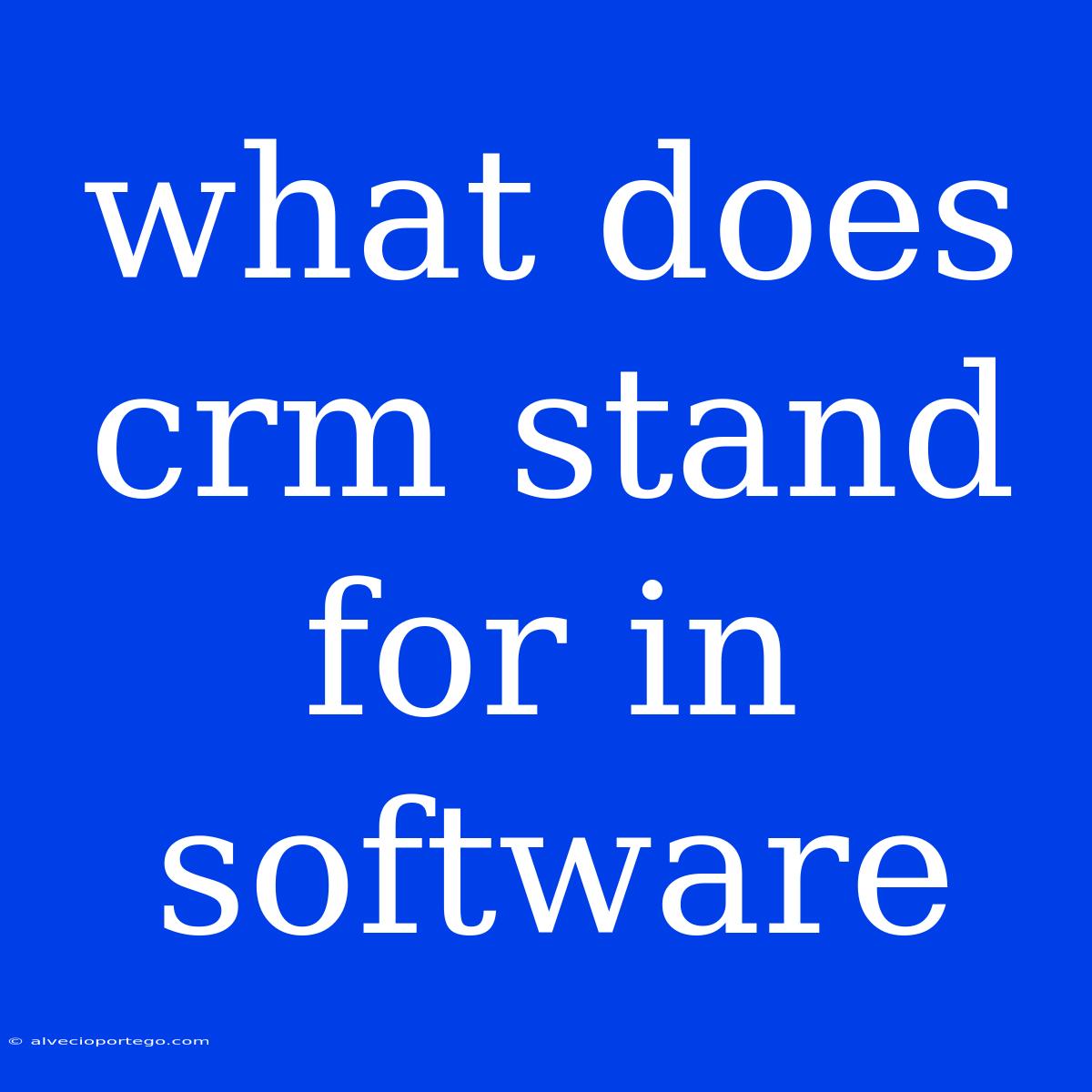What Does CRM Stand For in Software?
CRM stands for Customer Relationship Management. It refers to a software solution designed to help businesses manage and improve their interactions with customers.
What is CRM software used for?
CRM software plays a crucial role in streamlining and optimizing customer-related processes, encompassing various aspects:
- Customer Data Management: CRM systems act as a central repository for storing and organizing customer information. This includes contact details, purchase history, preferences, interactions, and more.
- Sales Automation: CRM tools automate sales tasks, from lead generation and qualification to opportunity management and deal closing. They provide insights into sales performance and enable sales teams to focus on high-priority leads.
- Marketing Automation: CRMs can segment customers based on their behavior and preferences. This allows for targeted marketing campaigns, personalized communications, and improved engagement.
- Customer Service and Support: CRMs enhance customer service by providing a unified view of customer interactions, enabling agents to resolve issues efficiently. They often include features like live chat, ticketing systems, and knowledge bases.
- Customer Analytics: CRMs offer data-driven insights into customer behavior, preferences, and trends. This information helps businesses understand their customers better and make informed decisions.
Benefits of using CRM software:
- Improved customer satisfaction: By providing personalized experiences and efficient support, CRM software fosters stronger customer relationships.
- Increased sales and revenue: Efficient sales processes, targeted marketing, and a better understanding of customer needs drive sales growth.
- Enhanced team productivity: CRM tools automate tasks and streamline workflows, freeing up team members to focus on high-value activities.
- Better decision-making: Data-driven insights from CRM systems enable businesses to make informed decisions about customer engagement, product development, and marketing strategies.
Choosing the Right CRM:
Selecting the right CRM solution depends on your specific needs and requirements. Consider factors like:
- Business size and industry: Different CRMs cater to businesses of varying sizes and specific industries.
- Budget: CRM software comes in various pricing models, from free to enterprise-grade solutions.
- Features and functionality: Identify the features that align with your business needs, such as sales automation, marketing automation, customer support capabilities, and reporting tools.
- Integration capabilities: Ensure the CRM integrates seamlessly with your existing software systems.
Implementing and utilizing a CRM software effectively can significantly benefit your business by fostering customer loyalty, driving sales, and streamlining operations.

